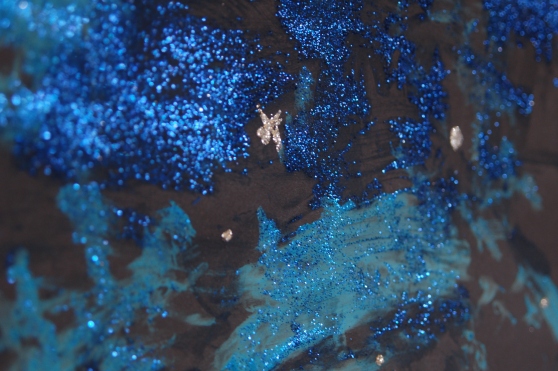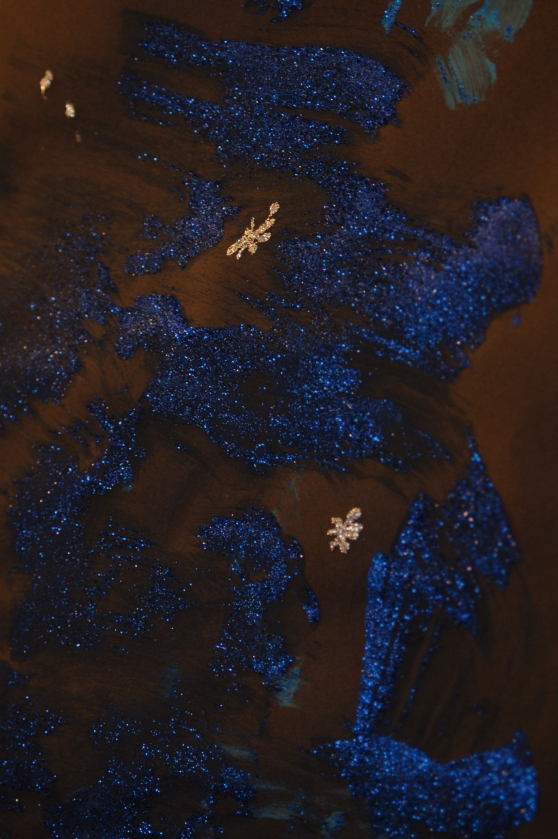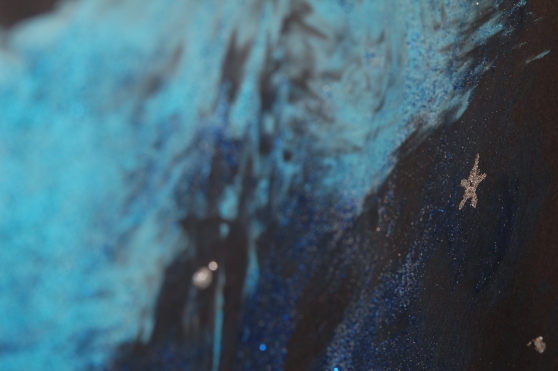 “Beside us sit all the loves we’ve lost, by our own devices or those of others. It’s why we sit a space or two apart from one another, the open cushions spelling our SOS to whomever might watch from above. I have arrived here without a single idea what love is.”
“Beside us sit all the loves we’ve lost, by our own devices or those of others. It’s why we sit a space or two apart from one another, the open cushions spelling our SOS to whomever might watch from above. I have arrived here without a single idea what love is.”
Tag Archives: Advent
Of All I Need to Be Reminded
 “I am reminded again of all I need, again, to be reminded. The many things I have been told, have heard, have sewn together, have known, and without quite forgetting need to be told, hear, stitch and know again.”
“I am reminded again of all I need, again, to be reminded. The many things I have been told, have heard, have sewn together, have known, and without quite forgetting need to be told, hear, stitch and know again.”
Re-seeing Christmas in the latest Ruminate post.
Hurry
Upcoming Reading: Awaiting the Light
Join me Tuesday, December 10, 4-5 pm for an advent literary reading at Bethel University.
I’ll be reading my essay “First Sunday of Advent” as part of this literary and art event reflecting on dark, shadow and light in the advent season.
Step out of your whirlwind of work, sip a cup of tea, and refresh with poetry, scripture and essays among Mary Temple’s Light Installation in Bethel’s Olson Gallery.
Hope to see you there–
Carol
We know the first verses. The midnight clear, the deep and dreamless sleep, all calm, all bright. The velvet, star-glittered cosmos wheeling over the snug, sun-warmed stones. The vast ancient neighboring the humble ancient. The seam of far dawn cerulean on the horizon. The diamond-white flare; heavenly light cracking through the prism of the singular star. The smell of hay. The wind in the dark, fresh as cool water, eddying the pattering olive boughs. The silence.
We know the first verses. Childhood Christmases of gaze and wonder, footed pajamas and noses on cold, silhouetted glass. Teenaged Christmases, like water tumbling into a burned-out chest, filling the vessel exhausted by the fires of intensity. Twenty-something Christmases strung by mental contortions; wiring and soldering theologies to complete circuits— striving for something that will conduct the currents of joy, ground and insulate peace.
Along the next advent days, the chorus enters, intermittent, counterpunctual:
Alto[1]: “What does it feel like to be alive? Living, you stand under a waterfall.… The hard water pelts your skull, bangs in bits on your shoulders and arms. The strong water dashes down beside you and you feel it along your calves and thighs rising roughly back up, up to the roiling surface, full of bubbles that slide up your skin or break on you at full speed. Can you breathe here?.…It is time pounding at you, time. Knowing you are alive is watching on every side your generation’s short time falling away as fast as rivers drop through air….”
Baritone[2]: Theotokos, the God-bearer. She is the one who suffers unprecedented and unmediated contact with the Holy Presence.
Alto: “I am sorry I ran from you. I am still running, running from that knowledge, that eye, that love from which there is no refuge. For you meant only love, and love, and I felt only fear…. So once in Israel love came to us incarnate, stood in the doorway between two worlds, and we were all afraid.”
Mezzo-Soprano: “The angel said, ‘The Holy Spirit will come upon you, and the power of the Most High will overshadow you.’ And Mary said, ‘I am the Lord’s servant. May everything you have said about me come true.”
Tenor[3]: “Human beings are dehumanized by fear…But they should not be afraid…. There, look to him in your fear. Think about him, place him before your eyes, and call him. Pray to him and believe that he is now with you and helps you. The fear will yield and fade, you will become free through faith in the strong and living Savior, Jesus Christ.”
Soprano[4]: “When we say we’re looking for a spiritual advisor, we’re really looking for someone to tell us what to do with our bodies…. While some are motivated by love (those who choose), most are motivated by fear (those who choose by not choosing).… But [there’s] something else instead, much less simple—a dissonance—like grief, whose pain is love.”
Mezzo-Soprano: “Mary treasured all these things in her heart.”
Alto: “The dedicated life is the life worth living. You must give with your whole heart.”
Bass[5]: “God being born as a baby is his way of saying, ‘You don’t need to be afraid of me. You don’t need to be afraid of me.’”
Caesura: A silent pause, during which time is not counted. Caesura. Caesura. The prayer we desire and fear. The infant we can only wrap in swaddling clothes, must soon lay in a manger because we cannot bear this embrace. Dense as a black hole; brilliant as a supernova. Lethal to hold so close to the heart: consuming, addicting, perpetual.
He could never have come as anything other than an infant. A babe in arms—unable to will harm but utterly demanding; consuming you to exhaustion, feeding you to overflowing. Powerless but irresistible. Can you walk away from the crying child? Even as hate and frustration strangle your breath, can you walk from the cradle without murdering a part of yourself? The child demands it, but you must choose what to sacrifice. Self or self? Once the child has arrived, he cannot be undone. For all the pain (the labor) the cost, you cannot imagine unexisting him. And even so, there is nothing to fear. Walk away, abandon and starve the child, and—still—when you return, forced back hardened and burning, threatened by infection, he will gladly receive, will place his hand over your heart, will meet your eyes with nothing but gratitude. He is incapable of grudge, retaliation, judgment. He has not chosen this; it’s his nature. All choice is yours. Will you crook your arm or lay back your head, still everything but your beating heart, so the child can give the only gift he has to give? Will you make of your body a place he can rest? You will not otherwise rest; set him down and the demands will begin. Caesura, caesura: during which time is not counted. Can I nurture this child? One I did not create, but who creates me?
“God being born as a baby is his way of saying, ‘You don’t need to be afraid of me. You don’t need to be afraid of me.’”
Now we begin to learn the second verses. We find we know them by heart, but have never heard them, never noticed:
Still through the cloven skies they come, with peaceful wings unfurled;
And still their heavenly music floats o’er all the weary world:
Above its sad and lowly plains, they bend on hovering wing,
And ever o’er its Babel sounds, the blessed angels sing.
O ye beneath life’s crushing load, whose forms are bending low,
Who toil along the climbing way, with painful steps and slow;
Look now, for glad and golden hours, come swiftly on the wing;
Oh rest beside the weary road, and hear the angels sing.
We have never noticed: Every carol is a lullaby.
…
…
[1] Annie Dillard
[2] Scott Cairns
[3] Dietrich Bonhoffer
[4] Anne Michaels
[5] Greg Boyd
Third Sunday of Advent
 “…for all the currents toward a merry Christmas, hope’s prerequisite is brokenness. Hope’s forgotten soul is insufficiency….” Click to wrestle through the Third Sunday of Advent.
“…for all the currents toward a merry Christmas, hope’s prerequisite is brokenness. Hope’s forgotten soul is insufficiency….” Click to wrestle through the Third Sunday of Advent.
The First Sunday of Advent
I’ve become convinced that I’d be a better person if I made more art with my children. The act of creating, not for completion or accomplishment, but for the slick of paint, the jazz of color, the wind of air over twirling arms is somehow the center of being. Making art— not for a paycheck or prestige, not of duty or deficiency— is somehow transcendent and elementally human.
When I paint by myself, I justify the mess by the product. There’s flour in my hair because I made a nephew’s birthday cake. There’s thread in the carpet because my son outgrew his pajamas. Making things still gives me a splash of fulfillment, but it’s not immersion in the current. I’m not cleansed, scoured, buffeted, carried by refinishing even the most beautiful desk.
When I paint with my children, the mess isn’t for anything. The mess is the thing. I’m as often frustrated by this as inspired. What do you mean you’re done? I just finished getting everything out.
Greg Pennoyer, project director of the international art exhibition Incarnation: A Recovery of Meaning, guesses most of us adults have difficulty relating to Christmas after the wonder of childhood in any way other than materialism or sentimentality. He thinks this might have something to do with our aversion to messes:
“The more I reflected…the more I realized that my own temptation to sentimentalize Christmas involved turning away from the messiness of my disenchanted, adult life.” But Christmas is “the story of a God who does not disdain this world, despite its frailty, ambiguities, and messiness.”
This advent I hope to see it: that the mess is the thing. That I’m as often going to be frustrated by this as inspired. And I hope I can manage to voice something in my soul other than, What do you mean it’s done? I just finished getting everything out.



